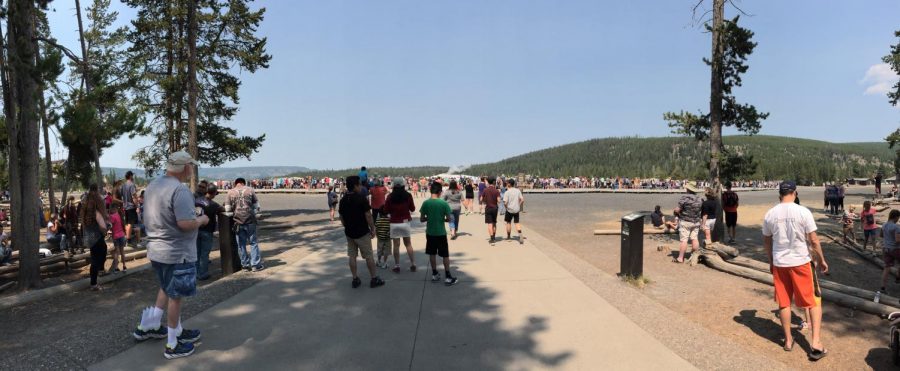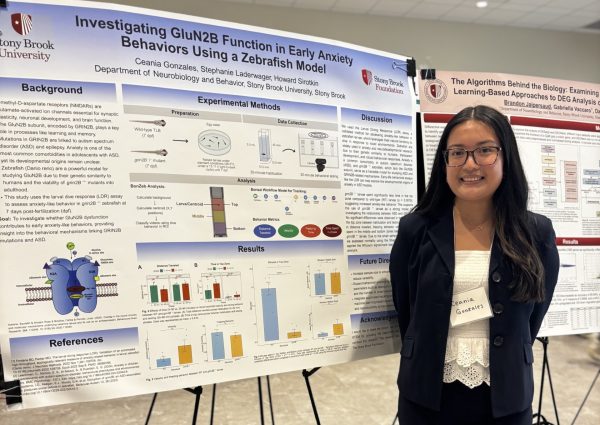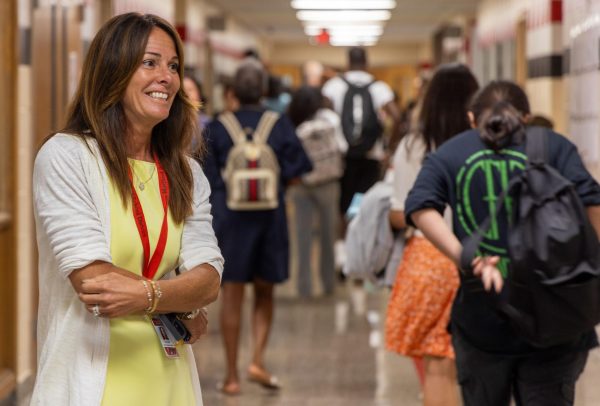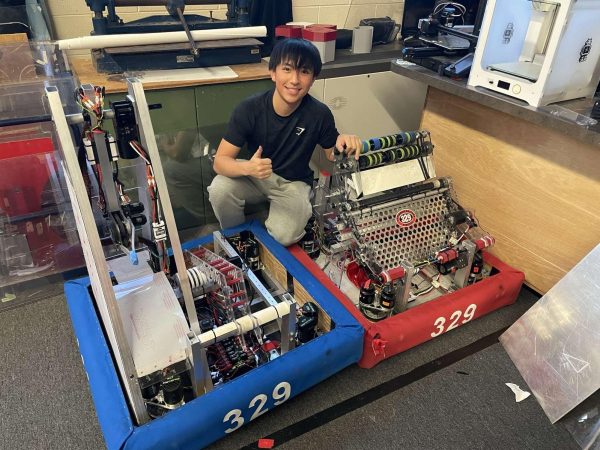Our Parks Are Victims Too
Our nation has been partially shut down for a month now. How has this affected our treasured national parks?
Photo by Justin Zhou
Hundreds are gathered on a hot, summer day to witness the eruption of the Old Faithful geyser at Yellowstone National Park.
I’ll admit, the prospect of vacationing at national parks in the dry, mountainous West may not seem the most exciting. But after witnessing the unworldly creations of nature during my road trip this summer, I gained insight into just why we, as the American public, hold these acreages to such high regard.
Immediately, I was fascinated by everything from the prismatic displays of archaebacteria living in hot springs to the looming arches that were in no way comparable to the St. Louis Gateway. It was tangibles too- the rough volcanic rock dotted with air pockets, the pervasive sulfuric stench of geothermal activity, the pristine clearness of the water basin.
Perhaps it was in the moment where I captured hundreds of visitors from all over the nation, counting down the seconds until Yellowstone’s renowned Old Faithful erupted once again, that I understood. National parks were a gathering place that privileged humans with some of the world’s greatest treasures.
While I carried on with this notion for the next few months, I never really considered the implications that came with managing such vast territories until recently. Reading the news on my phone last week, I scrolled by various headlines concerning the partial government shutdown:
“Government shutdown: How it impacts what you eat from food safety to beer”
“To build the wall, Trump is sacrificing airport security during the government shutdown”
But one headline in particular caught my eye:
“Joshua Tree National Park’s Signature Trees Are Among Shutdown Victims”
Clicking on the article, I soon discovered the toll that the shutdown had been taking on the nation’s beloved treasures, unbeknown to the general public. Without federal employees managing the parks, the public was free to inflict any damage. At Joshua Tree National Park in particular, some motorists felt the need to create new roads within the preserve, and without proper authorities to stop them, they were free to do whatever they desired.
According to IFLScience, the lack of staffing and security rapidly resulted in “piles of dumped trash, dirty bathrooms, vandalism, and bad behavior.” While some have volunteered to help clean up without pay, the extreme shortage of staff combined with the lack of funds and resources have had a detrimental effect on these parks that could take years to recover from.
Perhaps it was my recent trip to Yellowstone that made me so intrigued by this subject, or simply I understood just how unexpectedly destructive our political climate can be, that I investigated further into this topic. I had traveled with several of my cousins during my trip, and decided to inquire how they thought about the whole situation.
Naturally, they were shocked by the information I presented. My 10-year cousin, Leon, stated, “It’s sad to see something we just visited being damaged. We really need to bring the workers back so we can restore the parks.”
My older cousin Connie shared similar sentiments, and being somewhat of an environmentalist herself, believed that “something needs to be done before the damage escalates and we have no more national parks to visit.”
It was this response that truly hit the mark for me in my understanding of the political climate. Having started on December 22nd, it has been exactly a month that our nation has been partially shut down. Regardless of if the Democrats or President Trump is “right” in their immigration and border policies, the American public is feeling the pain that will only intensify as the weeks continue. From those living paycheck to paycheck to others trying to reach the IRS office, everyone will sooner or later be affected in some way.
Our national parks spanning from sea to shining sea is a great depiction of the degradation of national treasures and values because of this battle. Several petitions have been created to protect our natural parks, with one being urging the Department of the Interior to close down national parks to the public during the shutdown. Regardless of what the solution or compromise may be, it is obvious we need one fast as we head towards an uncertain future.







